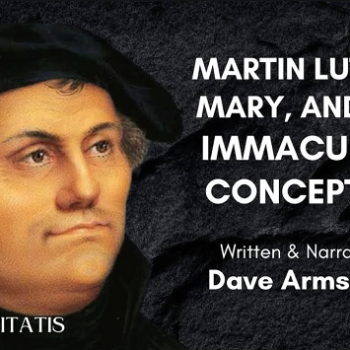In this week's Torah portion, Toldot, Isaac blesses his twin sons. Isaac's blessings conflate power and wealth with Divine favor, a belief, common in the Torah, later embodied by the Puritans and most recently personified by the Christian prosperity Gospel.
A bit of trickery and subterfuge later, Isaac blesses Jacob:
May God give you of the dew of heaven and the fatness of the earth, and abundant grain and wine. People will serve you, and regimes will prostrate themselves to you; be a lord to your kinsmen, and your mother's sons will prostrate themselves to you (Gen. 27:28-29).
And then Isaac blessed Esau:
By your sword you shall live, but your bother you shall serve; yet it shall be that when you are aggrieved, you may cast off his yoke from upon your neck (Gen. 27:40-41).
Where there is Divine favor there is also hegemonic power, and conversely, where there is sin there is a loss of hegemonic power. Esau is told that he will be a second-class citizen, who will be ruled by his twin brother, until his brother sins and then Esau will be free. Rabbis, particularly Rashi (1040-1105), turned to these blessings to explain the oppression Jews experienced under Rome's rule and in Christian Europe. In their oppressors, the rabbis saw Esau. The hope of liberation became the fantasy of oppressing the oppressors. In time, Esau would once again bow to his brother.
In the apocryphal text, the Book of Jubilee, which contains the same basic narratives as Genesis, Esau's blessing is reiterated and expanded, further doming his legacy. Here, the cycle of oppression ends with Jacob as the only one left standing.
And by your sword you shall live, and you will serve your brother. And it will happen when you become great, and you will remove his yoke from your neck, that then you will surely sin completely unto death, and your seed will be rooted out from under the heave (Jubilee 26:34).
The end of days will come when Esau is "rooted" out from the earth, rather than when the brothers find peace with each other.
The truth of oppression and the fantasy of ruling over the oppressor are our legacy and our history. We spent two millennia fantasizing about ruling the world, while living under the often cruel authority of rulers not of our choosing. We imagined what it might be like to be first class citizens. We made order of our world by justifying the many injustices we experienced as Divine punishment. However, the ethic of the Jacob/Esau fantasy is radically different when it is a mere fantasy and when it collides with the reality of power.
When Puritans arrived on the shores of this supposedly uncharted land, living the Jacob/Esau fantasy become real for them. Finally, perceived Divine favor fell upon them with its corollary, the opportunity to be "lord over your kinsmen" (27:29).
As for the Puritans, the Jacob/Esau fantasy has become our reality in many places. May this fantasy exit our collective consciousness. This Thanksgiving, may we dream not about first class citizenship for some, but about home and citizenship for everyone.
11/23/2011 5:00:00 AM





